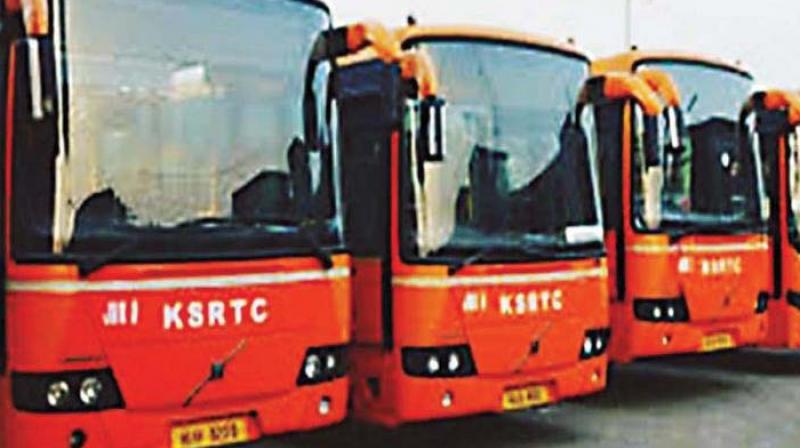AI sensors to keep KSRTC drivers on alert
If the driver fails to wave at the sensor, the AI system assumes that the driver is asleep and emits an alarm to alert the driver.

BENGALURU: The state-run carrier Karnataka State Road Transport Corporation (KSRTC) gets many complaints regarding the safety measures that are in place for its drivers.
To keep themselves awake in the night and avoid falling asleep while driving during their duty, the drivers often resort to use of addictive measures such as pepper, Vicks and chillies.
Now, with a view to ensuring the safety of the drivers and the travelling passengers, the KSRTC authorities plan to install Artificial Intelligence (AI) systems on the front bumper of buses to avert collisions and alert sleepy drivers.
Speaking to Deccan Chronicle, a senior KSRTC official said "the Corporation is going to install AI systems in over 500 buses, which primarily ply on long-distance services because many times we have received complaints that buses meet with accidents as sleep-deprived drivers are made to work tirelessly putting the lives of several people at risk. Also, we had a trial run of an anti-collision system for a bus and now we are going for 10 more buses."
According to the Corporation, as part of the new AI system that will be installed in over 500 KSRTC buses a sensor will be fitted near the driver’s seat.
He needs to wave his hand across the sensor at regular intervals, which can be customised.
If the driver fails to wave at the sensor, the AI system assumes that the driver is asleep and emits an alarm to alert the driver.
"The sensor fitted at the front bumper of the bus continuously monitors objects within a range of up to 180 feet and cautions the bus driver with a beep or an alarm in case of any danger of collision.
Another sensor fitted near the headlight handle cautions the driver if the driver is caught napping.
The sensors will act immediately when the driver doesn’t wave to the sensor and cuts off the accelerator," the KSRTC official added. This new system is being provided by Mumbai-based start-up Sixth Sensor Technology.
Also, some private transport companies in Karnataka have already implemented the system in which long-distance luxury buses are fitted with sensor-based equipment.
The driver is expected to wave at the equipment every three to four minutes.
If the driver fails to do so, then the equipment emits a loud alarm, waking up the sleepy driver.

